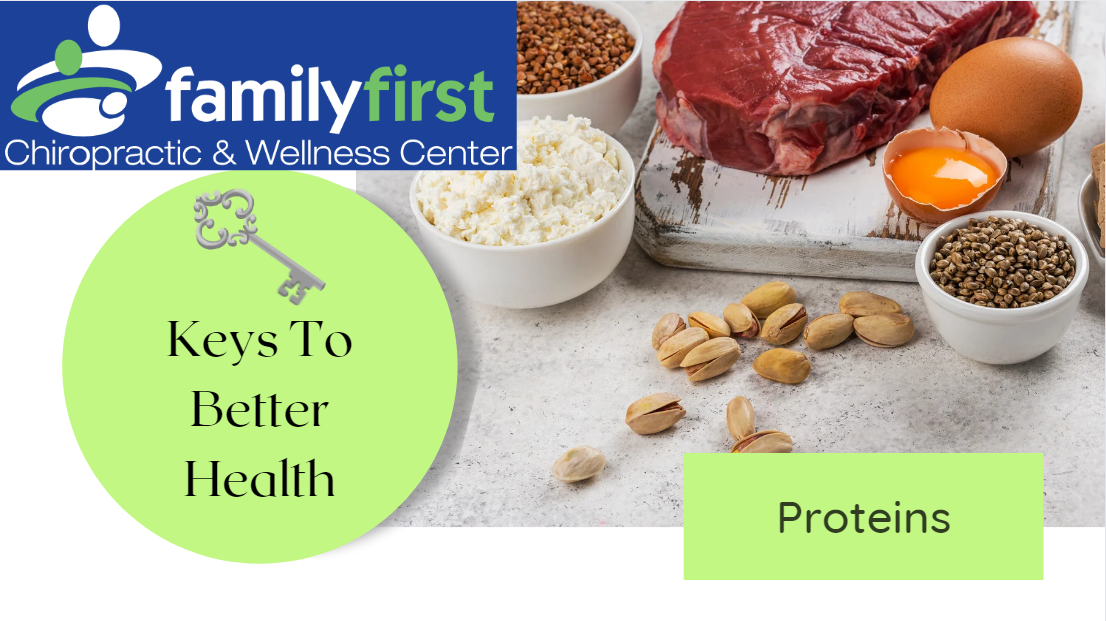
Protein: the essentials of life
If I had to pick ONE thing to focus on when trying to change your health (and your waistline), it would be proteins. Protein is most recognized for its role in muscle development and repair, but it is also SO important for numerous other vital processes in the body.
Our bodies NEED protein, and there a few ways you can get it. The molecules that combine to form proteins are called amino acids. These bad boys are the building blocks of life! They help to:
- boost athletic performance
- tissue growth and repair
- improve mood
- energy production
- immune function
- nutrient absorption
Amino Acids: The Building Blocks of Proteins
Amino acids are organic compounds composed of mainly nitrogen, carbon, hydrogen, and oxygen, and they are categorized as either essential, conditionally essential, or nonessential depending on several factors.
- Essential –> proteins you body cannot make on its own so you HAVE to get them through food
- Conditionally essential –> your body can make these, but only under certain circumstances
- i.e. illness and pregnancy
- Nonessential –> you body can make these on its own
WHERE CAN I GET ESSENTIAL AMINO ACIDS FROM?
There are a total of 20 different amino acids you need to grow and function properly, but only NINE are classified as essential (the names of them are not important right now, just know there are 9 of them). Essential amino acids are found as complete or incomplete proteins.
COMPLETE PROTEINS
Complete proteins are sources that contain all 9 essential amino acids and tend to be animal sources, such as:
- fish
- poultry
- eggs
- beef
- pork
- dairy products
- soy (the only plant-based protein that contains all essential amino acids)
INCOMPLETE PROTEINS
Incomplete proteins tend to be plant-based sources, such as:
- vegetables
- legumes (lentils, peas, and beans)
- nuts
- seeds
- whole grains (brown rice or whole-wheat items)
WHAT HAPPENS IF YOU DON’T GET ENOUGH ESSENTIAL PROTEINS?
If you don’t get all 9 essential amino acids in your diet, your body can’t do anything with any of the essential proteins you did manage to get into your system. Consuming lean animal protein is the best way to make sure you get plenty of the essential amino acids your body needs, but it’s not the only way. It is possible to get all of the essential amino acids from plants. Soy is a complete plant-based protein, or you combine multiple incomplete proteins sources together to make sure you get all 9 essential amino acids. For example: beans with rice, or vegetables with rice.
WE KNOW THAT PROTEIN IS AWESOME, BUT ARE THERE ANY HARMFUL EFFECTS OF PROTEIN?
Just like with consuming too many carbs or too many fats, there are potential side effects when too much of your diet consists of protein. Kidney stones, heart disease, and colon cancer are just some examples.
High-protein diets
High-protein diets gained traction in the wake of the low-carb era as a way to lose weight by eating more protein-packed foods (and thus consuming fewer carbohydrates). A typical diet consists of 10%-15% of daily calories from protein, whereas in a high-protein diet this number can be anywhere from 30%-50%.
When increasing protein consumption, you naturally lower the amount of carb consumption. Some high-protein diets restrict carb intake so much that they can result in nutritional deficiencies and/or insufficient fiber intake which leads to things like headaches and constipation. And these diets typically come from animal sources, which contain a lot of saturated fat (and we already know the risks of consuming too many saturated fats).
For most people, a high-protein diet generally isn’t harmful, particularly when followed for a short amount of time. However, the risks of long term high-protein diets coupled with carb restriction are still being studied.
What should I eat?
Life is all about balance, and balance looks different for everybody depending on what your goals are. A good rule of thumb is to opt for lean meats, vegetables, nuts, and seeds while rotating in other protein options in moderation. If you’re not sure if you’re getting the right kind of protein in the right amount, we can help!

